Case Study
Vitamin Angels Innovates in Indonesia to Improve Maternal Health
Vitamin Angels is partnering with the Ministry of Health, universities, and local technical partners to strengthen Indonesia’s health systems at scale.
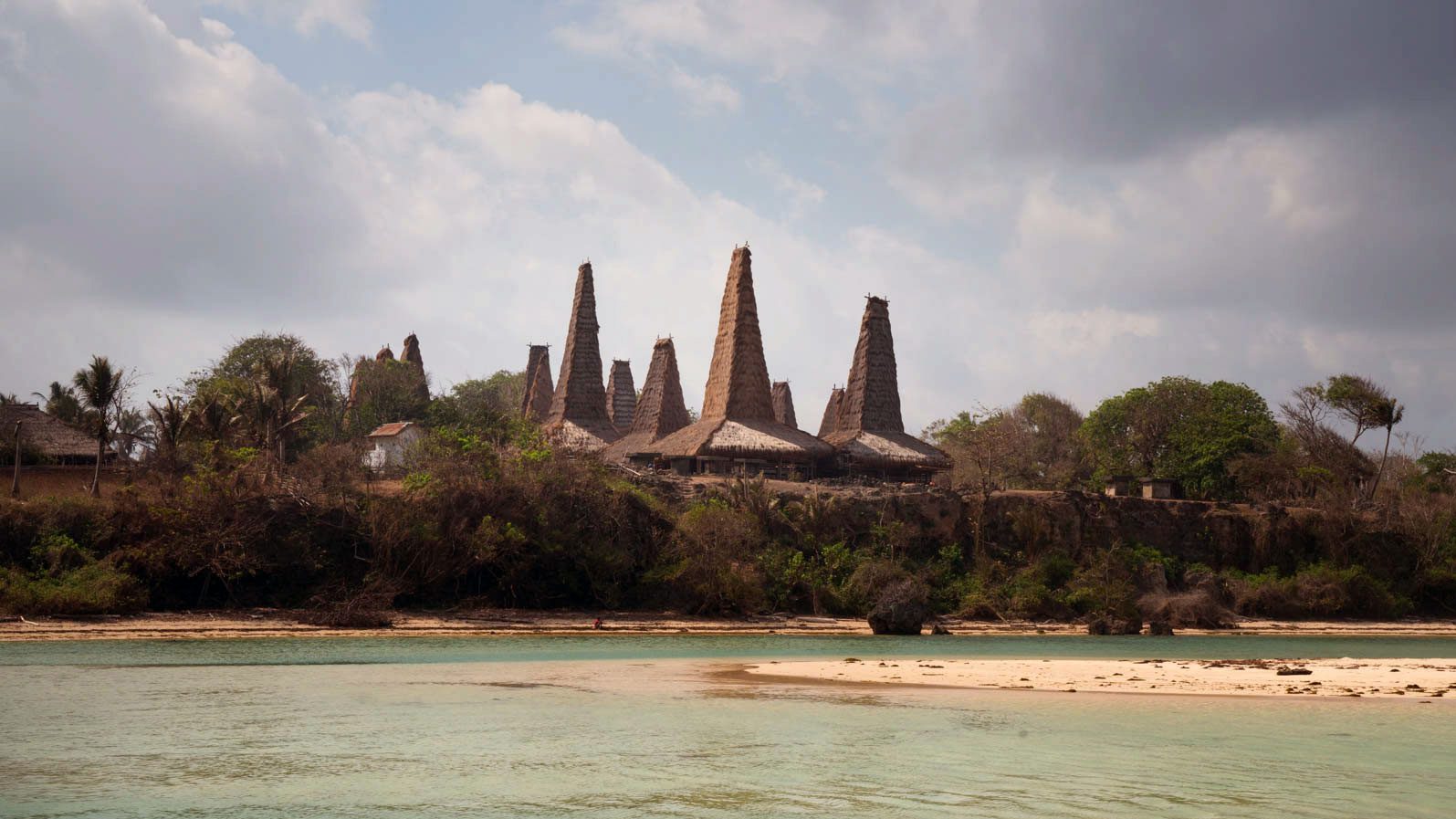
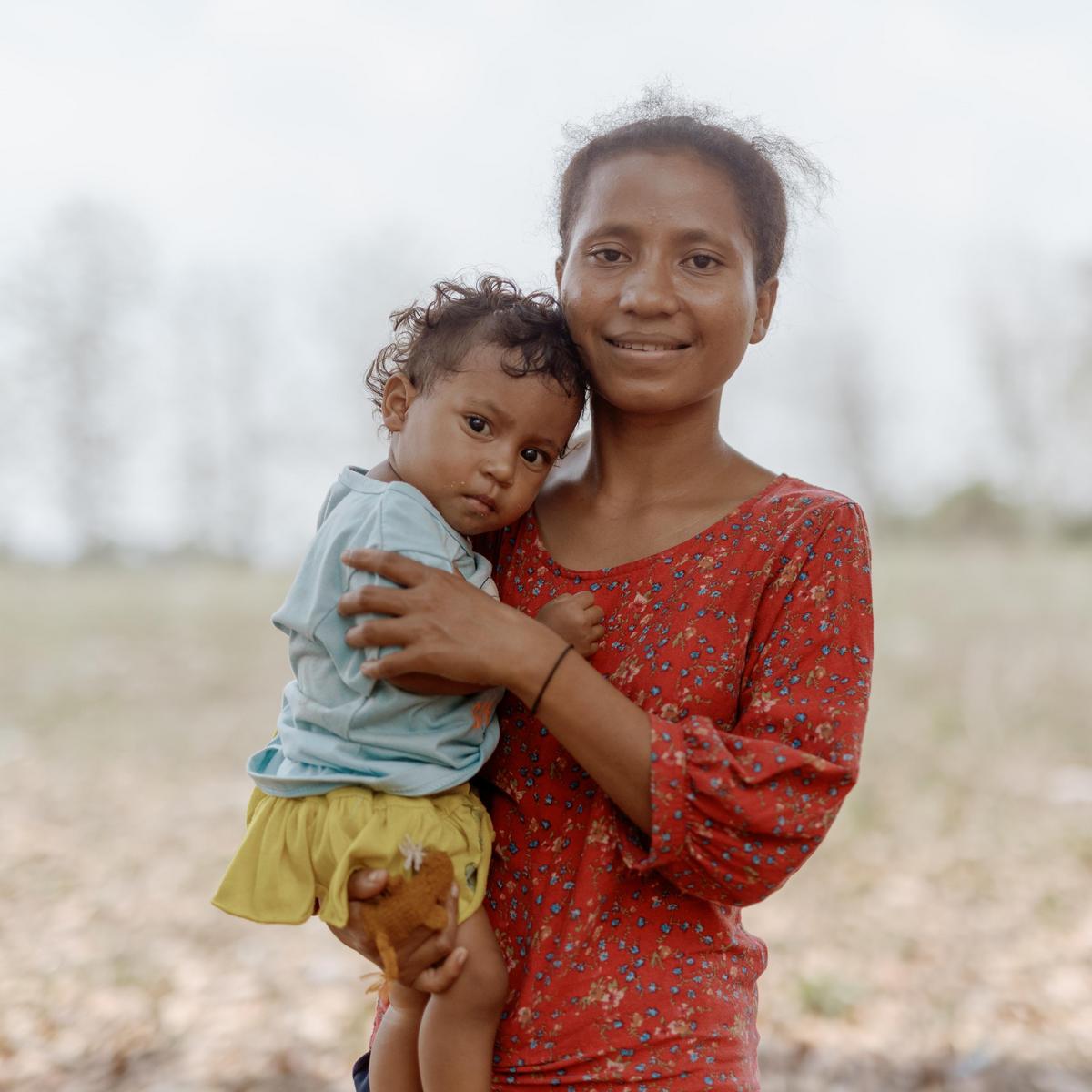
Our Annual Reach in Indonesia
Pregnant Women & Babies
798,000 with UNIMMAP MMS
Children Under 5
2,479,550 million with vitamin A and deworming treatments
Extensive Coverage
Working in 26 provinces throughout Indonesia
Our Team
- Otte Santika, Senior Program Advisor, Indonesia
- Maulana Hasan, Program Coordinator
- Markus Puthut Harmiko, Program Coordinator
- Kusyanti Febriani Hapsari, Program Assistant
- Simran Sachdev, Senior Program Officer, Asia
Persistent Malnutrition
Despite some progress toward key global health targets, malnutrition remains a significant public health problem in Indonesia.
Public Health Challenges
CHILD HEALTH
In Indonesia, 30.8% of children under age five suffer from stunting, a rate significantly higher than the regional average for Asia (21.8%). [1]
MATERNAL HEALTH
Nearly one-third of all women of reproductive age in Indonesia suffer from anemia. [2]
In 2015, Vitamin Angels began its work in Indonesia—a country where malnutrition remains a significant public health issue—by supporting local partners, including NGOs and universities. By 2023, Vitamin Angels was collaborating with 26 program partners to reach more than 2 million pregnant women and children under five.
In 2024, Vitamin Angels became fully registered in Indonesia and established a partnership with the Ministry of Health. Under the Ministry’s leadership, Vitamin Angels supports the Multiple Micronutrient Supplements (MMS) initiative in Indonesia, which was officially launched as a national program on October 17, 2024.
Vitamin Angels Supports Multiple Projects to Improve Nutrition for Mothers and Children in Indonesia
Despite global guidance supporting high-impact nutrition interventions such as Multiple Micronutrient Supplements (MMS), major challenges exist in implementing them with the quality and scale needed to achieve significant improvements in national pregnancy and birth outcomes.
Country Overview
Indonesia, officially known as the Republic of Indonesia, is located in Southeast Asia and Oceania. Situated between the Indian and Pacific Oceans, it comprises over 17,000 islands, making it the world’s largest archipelago.
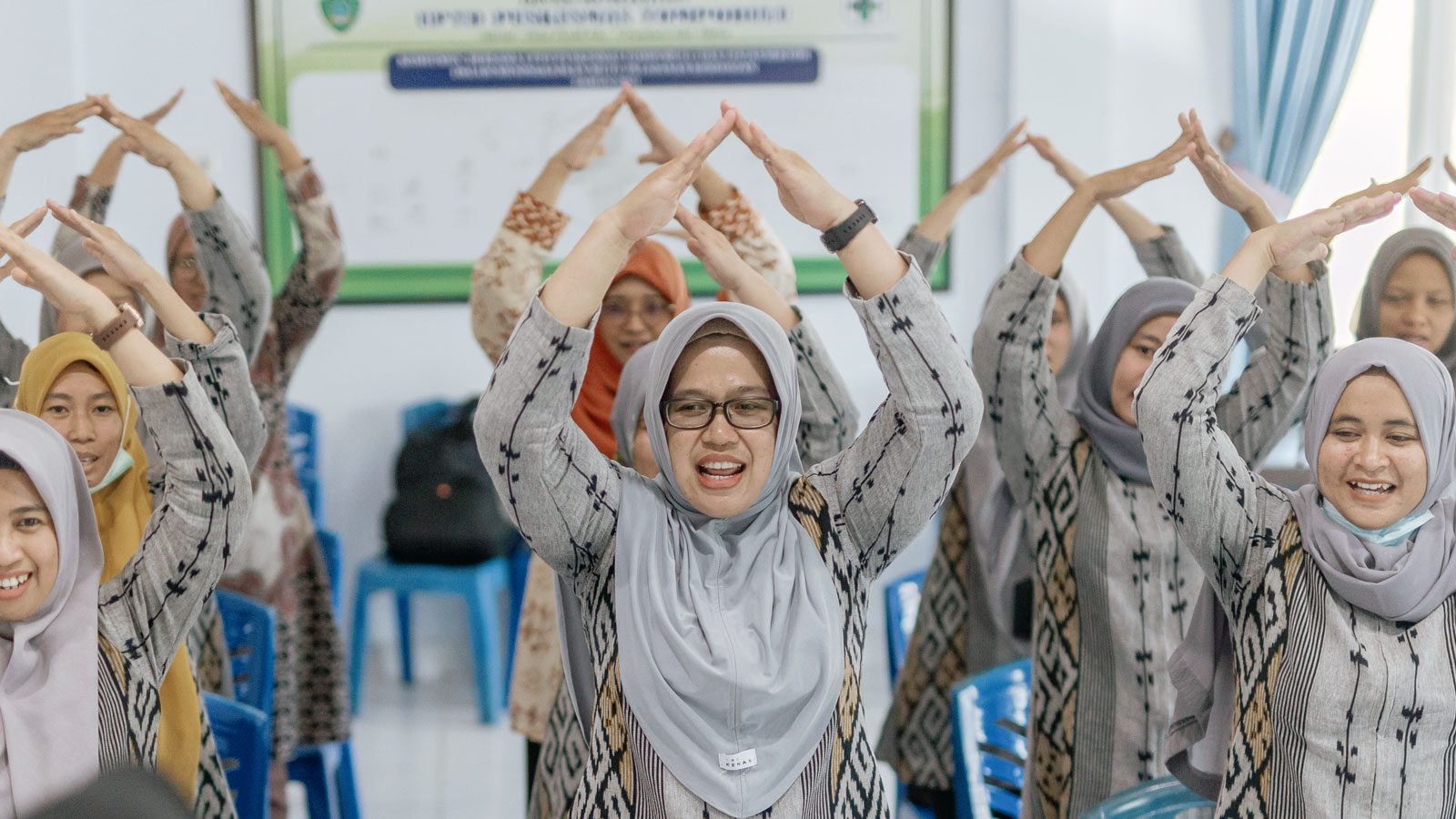
Program Summary
Vitamin Angels Works with Leading Researchers and Local Organizations to Increase VAS+D and MMS Coverage in Indonesia
Understanding the MMS Landscape to Meet Local Needs
From 2019 to 2024, in addition to product distribution, Vitamin Angels has worked with researchers from Airlangga University, Hasanuddin University, University of Indonesia, and Johns Hopkins Bloomberg School of Public Health’s Center for Human Nutrition, used an implementation science approach to better understand barriers to introducing MMS in Indonesia and to strengthen the implementation, impact, and sustainability of MMS policies and programs.
One successful method of introducing MMS through Antenatal Care (ANC) services is by developing an Interpersonal Communication (IPC) Strategy with the goals of increasing demand, addressing potential barriers, and strengthening motivating factors to promote MMS consumption adherence among pregnant women.
Our Approach
Vitamin Angels began collaborating with local organizations in Indonesia in 2015 to build capacity and expand coverage of essential nutrition interventions to pregnant women and young children in underserved communities.
Today, we offer vitamin A, deworming treatment, and MMS through 26 program partners across the country.
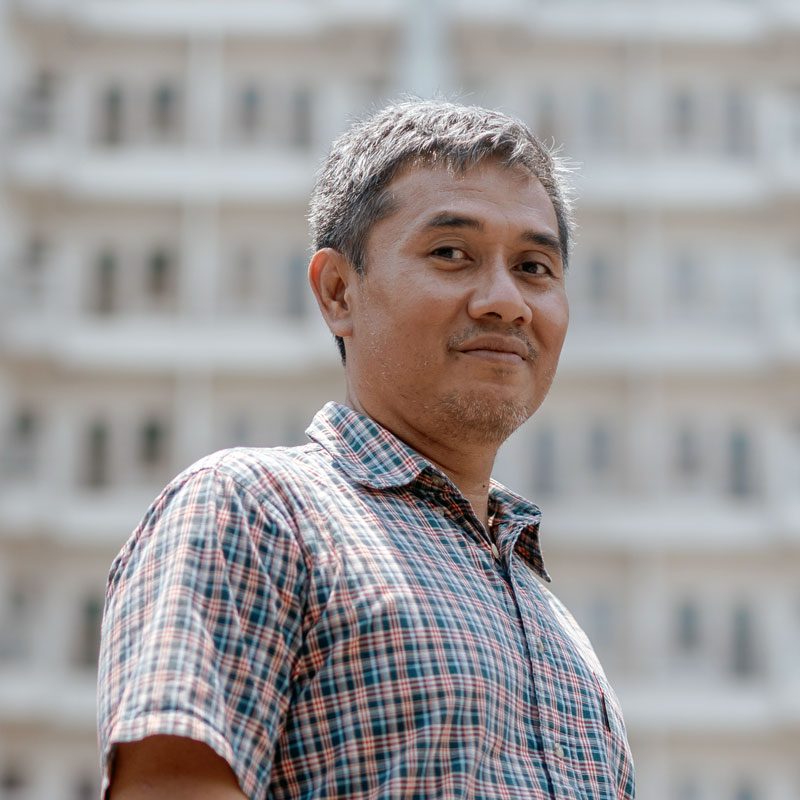
IPC, or interpersonal communication method, is an approach that maximizes our communication ability—our words, our nonverbal communication—to persuade or to educate people on their health issues.”
Risang Rimbatmaja, Social & Behavior Change Consultant for Vitamin Angels
Building Multi-sectoral Partnerships to Expand the Supply of MMS
As global demand for MMS continues to grow, it is critical to ensure the national supply is sufficient to reach all pregnant women in need, especially those within underserved communities.
In Indonesia, Vitamin Angels partnered with Universitas Padjadjaran to conduct a supply context analysis (SCA) to assess local procurement and production of MMS and understand the potential and cost-benefit for Indonesia to support local, in-country, or regional procurement and production of MMS.
Vitamin Angels is collaborating closely with Padjadjaran University and the Ministry of Health to assess the international product specifications for United Nations International Multiple Micronutrient Antenatal Preparation (UNIMMAP) MMS, aligning them with Indonesia’s regulatory requirements. The outcomes of this collaboration have been used to train pharmaceutical companies on UNIMMAP MMS standards and specifications, preparing them to produce MMS locally in Indonesia.
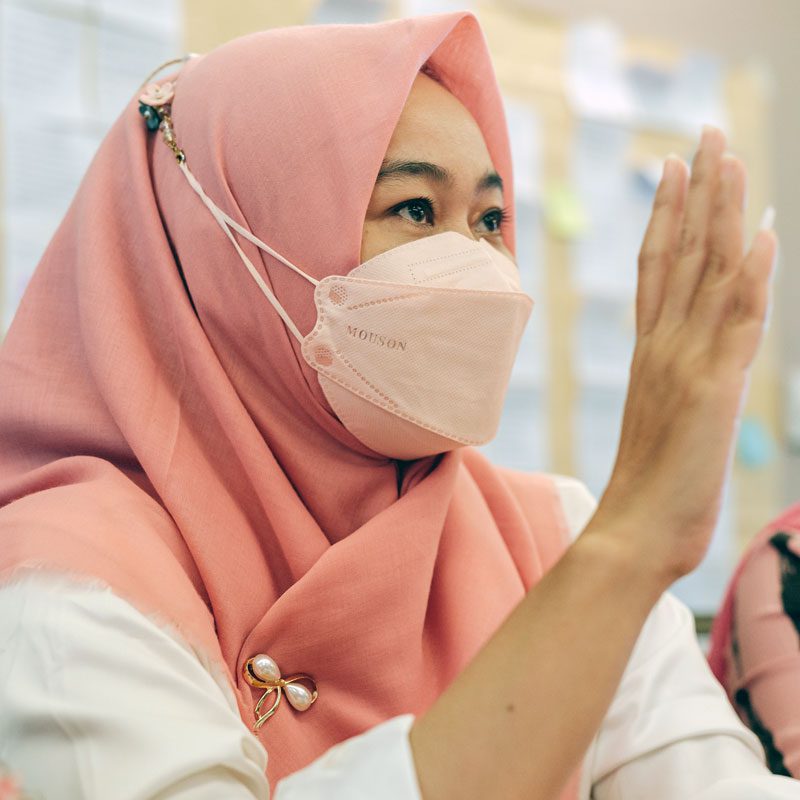
Supporting National Infrastructure
Building MMS Demand Through Advocacy and Capacity Building
Vitamin Angels regularly participates in meetings and workshops—from the global to the regional level—to share data and lessons learned, adapt our practices as new information is identified, and scale quality interventions to impact more women and children.
In October 2022, Vitamin Angels Indonesia joined representatives from several Asian countries, including Bangladesh, Cambodia, India, Indonesia, Nepal, Pakistan, the Philippines, Thailand, and Vietnam, as well as NGOs, government participants, and international organizations for the first regional meeting to advance UNIMMAP MMS.
In October 2024, Indonesia’s national maternal health care program officially transitioned from providing pregnant women with supplements containing just two ingredients, iron-folic acid (IFA), to MMS, with 10 vitamins and 5 minerals essential for a healthy pregnancy. The Minister of Health of the Republic of Indonesia is committed to ensuring all pregnant women in Indonesia benefit from UNIMMAP MMS as the national program launched and continues to expand to all districts by 2026.
Our Plan for the Future
Building on this strong foundation, the Vitamin Angels country team has identified short- and long-term activities to ensure high-impact nutrition interventions and programming are delivered to women and children in need. In the short term, Vitamin Angels will:
- Support the expansion of Vitamin Angels Nutrition in Pregnancy continuing medical education (CME) course.
- Support the inclusion of UNIMMAP MMS in the national essential medicine list (NEML).
- Develop a stepwise strategy to implement UNIMMAP MMS as a nationwide public program in Indonesia.
- Support the development of an MMS national digital campaign.
- Continue to provide advocacy support to advance the Ministry of Health’s MMS program implementation.
In the long term, Vitamin Angels seeks to expand programming in Indonesia by continuing to improve the capacity of health workers to deliver MMS with IPC training, ensuring adequate product supply, improving program coverage, and ultimately increasing MMS adherence among pregnant women.
Evaluation & Improvements
Vitamin Angels conducts monitoring visits to partners to ensure they are following best practices and our guidelines for product distribution.
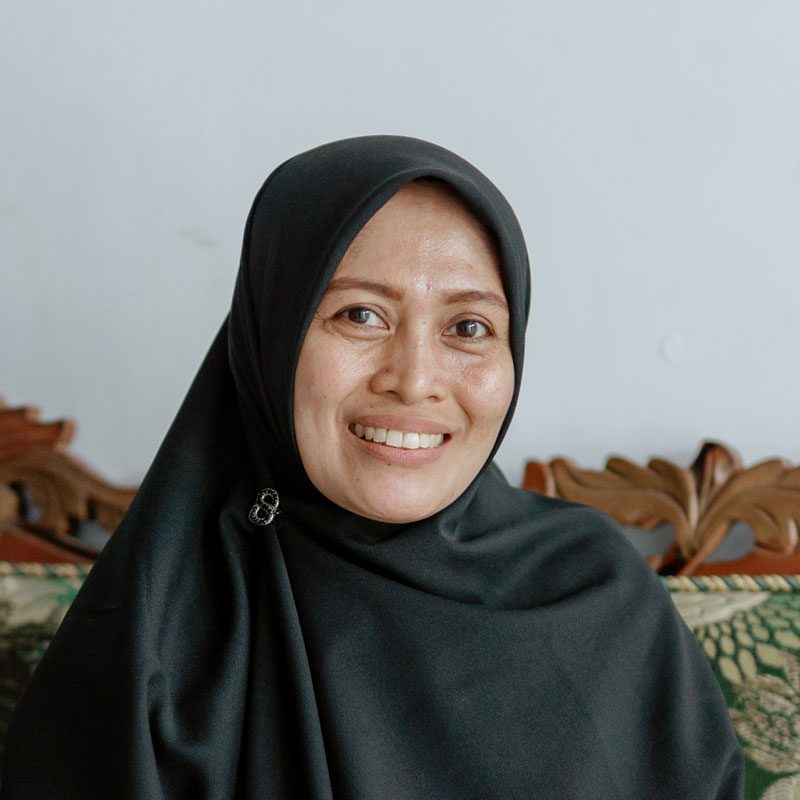
Success Stories
Midwives Training Midwives to Increase the Uptake of MMS
Anti, a midwife, worked with the Ministry of Health in Indonesia before becoming an MMS trainer at the local health center or ‘Puskesmas.’ She has already trained over 100 midwives, nutritionists, and 84 community health volunteers using the Vitamin Angels’ training program, which uses an Interpersonal Communication (IPC) methodology to teach pregnant women about the importance of adherence to MMS.
“The IPC program is very useful to me and all the midwives when communicating the key messages of MMS,” she said. “The interactive approach is more effective and more enjoyable for the recipients. Thank you to Vitamin Angels for helping to make the pregnant women of Indonesia healthier.”
[1] Global Nutrition Report. https://globalnutritionreport.org/resources/nutrition-profiles/asia/south-eastern-asia/indonesia/
[2] World Bank: https://data.worldbank.org/indicator/SH.ANM.ALLW.ZS?locations=ID
